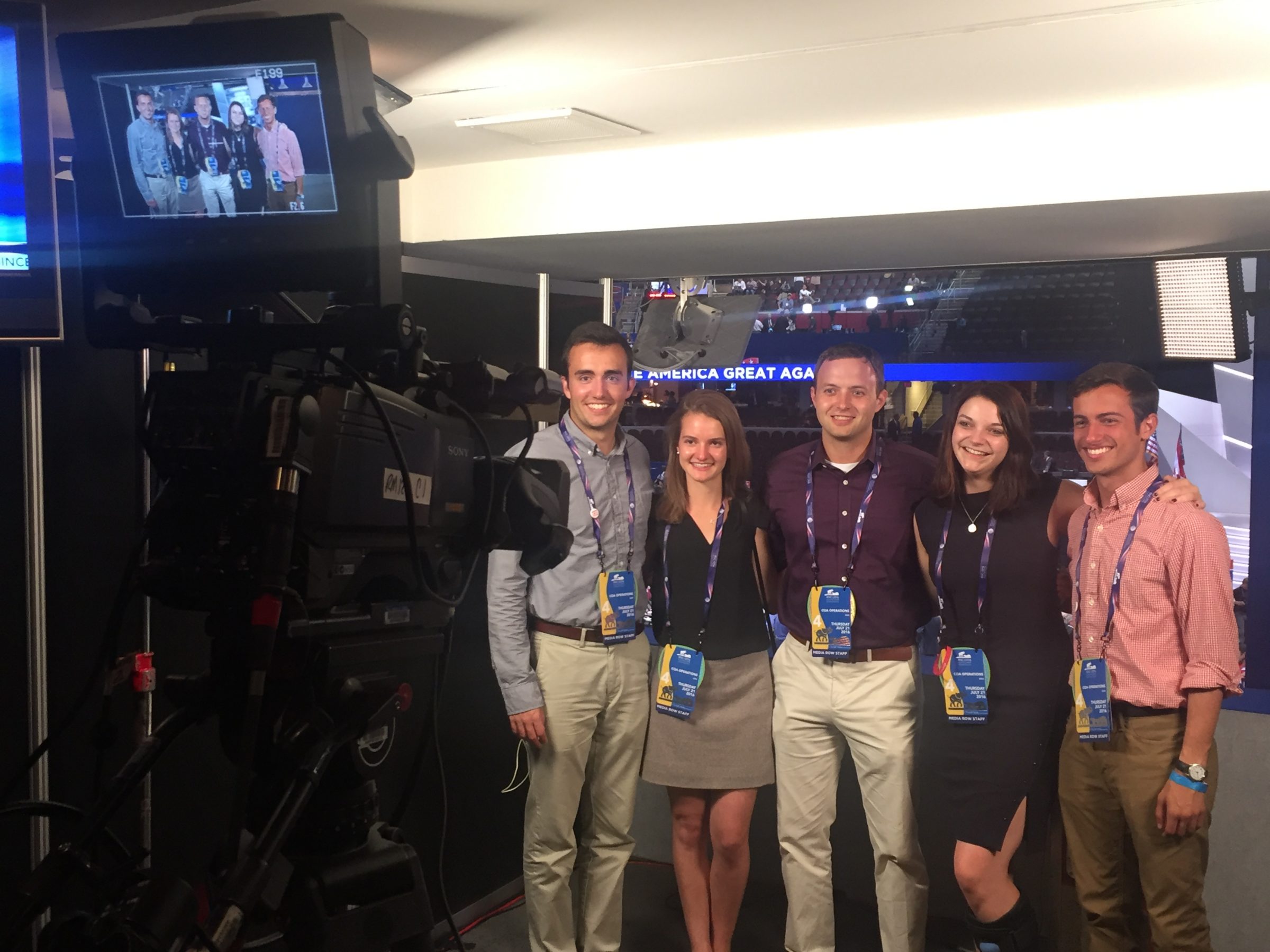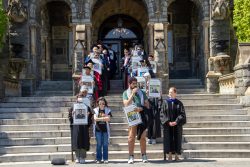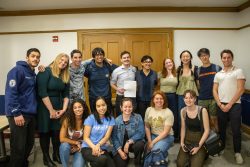During a campaign season fraught with political tension and conflict, twenty Georgetown students attended the Republican and Democratic National Conventions in July through a program with the Institute of Politics and Public Service and recently reflected on how their attendance affected their political perspectives.
Georgetown’s ambassadors served a variety of functions while interning. Working for DNC Communications, Dylan Hughes (COL ‘19) focused on press distribution, running advanced copies of speeches to press outlets. At the RNC, some convention ambassadors worked at POLITICO headquarters to facilitate ongoing events.
The ability to attend the convention, as opposed to watching on TV, actually caused some students to reexamine their views of their party.
C.C. Borzilleri (COL ‘19), a convention ambassador for the RNC and an incoming member of the Student Advisory Board for GU Politics, said that, “Being in the eye of the storm, the event that was intended to bring together the most prominent, influential, and characteristic members of the Republican party, however, has made me take a longer look at my own opinions and how they fit into the larger, national framework of the party.”
Some Democratic convention ambassadors felt similarly about their experience.
“The sympathy for Sanders’ supports gives insight to the atmosphere at the convention that may have been missing to viewers watching at home,” Sarah Clements (COL ’18) wrote in an email to the Voice. She found the parts of the convention that weren’t televised the most critical.
“I was happy to see protestors outside the arena, respected by most people, and not hounded. To me, that was an expression of freedom and democracy,” she said.
RC Paez (COL ‘17), another incoming member of the GU Politics Student Advisory Board, felt even more sympathetic towards the Sanders faction after attending the convention.
“I do think that the convention made me realize the level of frustration that many Bernie Sanders supporters felt during the election. Many of my friends at Georgetown had always been Hillary Clinton supporters, but to see the raw emotion of many in the Sanders campaign struck a real chord in myself,” he wrote in an email to the Voice.
While these protesters provided insight to the party, they also presented a danger not typically present for conventions. In response to threats from the co-founder of Black Lives Matter to shut the RNC down, Cleveland had extra police forces throughout the city to maintain safety. Although the extent of the RNC protests did not meet the anticipated fears, one protest did result in 18 arrested and two policemen with minor injuries.
However, Reed Howard (COL ‘16) found this to be an area where the media at the RNC may have inaccurately reported the conventions. “The media seemed to blow the size and scale of protests out of proportion. It seemed like they were trying to create a story where there wasn’t much of one,” he wrote.





